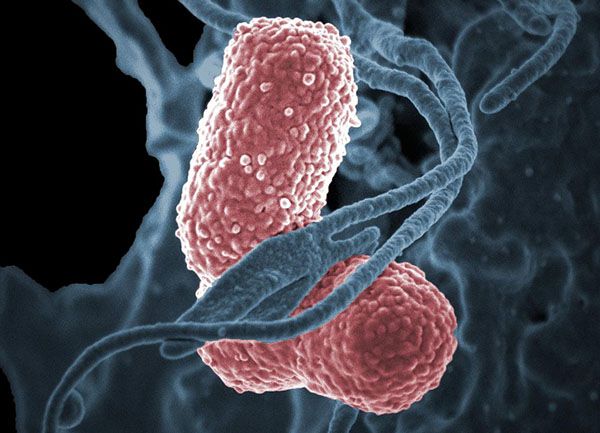Mouse study shows bacteriophage therapy could fight drug-resistant Klebsiella pneumoniae
Using viruses instead of antibiotics to tame troublesome drug-resistant bacteria is a promising strategy, known as bacteriophage or “phage therapy.” Scientists at the National Institutes of Health have used two different bacteriophage viruses individually and then together to successfully treat research mice infected with multidrug-resistant Klebsiella pneumoniae sequence type 258 (ST258). The bacterium K. pneumoniae ST258 is included on a Centers for Disease Control and Prevention list of biggest antibiotic resistance threats in the United States. High rates of morbidity and mortality are associated with untreated K. pneumoniae infections.
Phage therapy has been pursued for about a century, though conclusive research studies are rare and clinical results — from a handful of reports — have provided mixed results. In the new paper published in the journal mBio, the NIH scientists note that phages are of great interest today because of a dearth of alternative treatment options for drug-resistant infections. Bacterial resistance has emerged against even the newest drug combinations, leaving some patients with few or no effective treatment options.
In research conducted in Hamilton, Montana, at Rocky Mountain Laboratories — part of the NIH’s National Institute of Allergy and Infectious Diseases — and in collaboration with the National Cancer Institute in Bethesda, Maryland, scientists completed a series of studies on research mice infected with ST258. They treated the mice with either phage P1, phage P2, or a combination of the two, all injected at different times following ST258 infection. The scientists had isolated phages P1 and P2 in 2017 from raw sewage that they screened for viruses that would infect ST258 — an indication that phages can be found just about any place. Phages P1 and P2 are viruses from the order Caudovirales, which naturally infect bacteria.

Colorized scanning electron micrograph showing carbapenem-resistant Klebsiella pneumoniae interacting with a human neutrophil.
This page was last updated on Friday, January 21, 2022